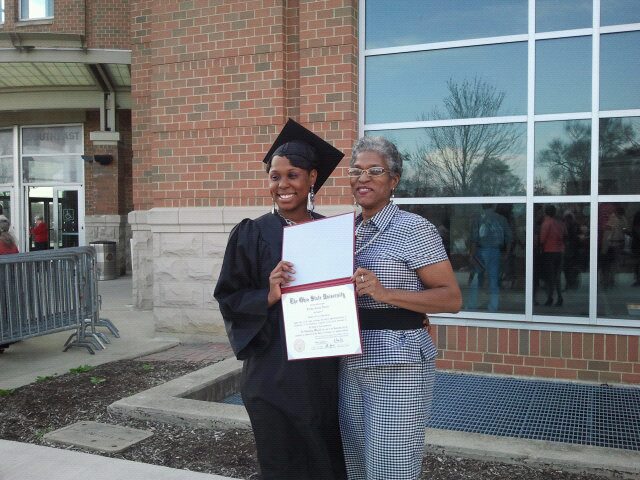We are proud to announce the launch of the CREATIVE CARE COUNCIL! LEARN MORE
We are proud to announce the launch of the CREATIVE CARE COUNCIL! LEARN MORE

By Eartha Terrell, Ohio Organizing Collaborative
My mother was not okay. She was hunched over with a look of grief and exhaustion painted all over her face. I tried asking what was wrong, but she didn’t need to say a word. It was clear: months of suffering in silence had finally taken its toll on her. She was physically and emotionally overwhelmed.
Just six months prior, my mother left her home and quit her job to move in with my 82-year-old grandfather, whose diagnosis of congestive heart failure coupled with a multitude of health complications prevented him from living alone.
Unwilling to watch her father – who spent his life taking care of her and her ten siblings – be forced out of the house he’d called home for more than 40 years, my mother made the decision to tend to the needs of her father.
For months, I helplessly watched her pretend to cope as she carried the same heavy burden of millions of caregivers in Ohio and across the country as they put their entire lives on hold to aid a loved one.
Day after day, with little to no financial, social, and personal support, my mother prepared meals, ran errands, monitored food intake, made doctors’ appointments, prepared medication, did laundry, cleaned the house, and anything else to ensure that my grandfather’s life remained as normal as possible.
I wish I could say that my mother’s experiences don’t echo those of 45 percent of family caregivers in Ohio who juggle the stress of their own lives along with the responsibilities of caring for their loved ones.
Unfortunately, I can’t. And unpaid family caregivers like my mom aren’t the only caregivers who are undervalued.
Home care workers, who also do the important work of caring for seniors and people with disabilities, were for decades excluded from basic minimum wage and overtime protections.
This changed last year, when the Department of Labor announced that as of January 1, 2015, home care workers would no longer be excluded from these basic labor laws. Yet the state of Ohio has yet to announce how it plans to implement these new regulations come January.
The consequences of wage suppression in the home care workforce illustrate why my state must improve the conditions of this critical workforce. In Ohio and elsewhere, it’s meant the perpetuation of poverty among millions of professional caregivers, mostly women and many immigrants and women of color, who as of this year make a mere $17,400 annually in Ohio.
As the value of home and community health care increases for Ohio’s aging population — which is expected to increase by 30 percent between 2010 and 2020, and by another 50 percent by 2040 — caregivers, home care workers, and direct care workers deserve to be treated fairly. In order to ensure that our aging population can age in place with dignity and independence, we must improve the quality of home care jobs by ensuring these critical workers have access to minimum wage and overtime.
Older generations — our grandparents, nanas, and papas — are an integral part of the fabric of the American family. As our older adults live longer, it is our work to preserve their dignity and support their caregivers, whether they are unpaid family caregivers like my mom or paid, professional home care workers.
I invite you to join organizations like Caring Across Generations and the Ohio Organizing Collaborative so that together, we can ensure that all caregivers receive the support they need.
About the author: Eartha Terrell is a Youngstown, OH resident and communications fellow with the Ohio Organizing Collaborative.